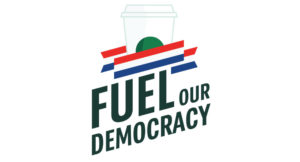We Should Press Companies to Get Behind the ‘For the People Act’ and the Efforts to Abolish the Senate Filibuster

As the Senate minority tries to kill H.R. 1, which would add many more Americans to the voting rolls, there is a simple and effective mechanism to build support for the bill to expand the franchise.
Corporate America needs to step up or face a serious reputational risk for not supporting the For The People Act.
That bill would ensure voting by mail, which, despite fact-free Trumpian claims of fraud, works as well or better than in-person voting, It would make sure people are not limited to Tuesdays to cast ballots, a practice enacted early in America’s history when men with property voted, but few working men cast ballots.
Passage in the Senate requires a 60-vote majority. How absurd. A minority of senators hold the power to prevent majority rule. Repealing or revising the filibuster rule would allow a majority vote to pass H.R. 1, with Vice President Kamala Harris casting the tie-breaking vote if Republican resolve endures against popular voting.
But imagine if Corporate America comes out for H.R. 1 as strongly as it did recent efforts to oppress Latinx and LGBTQ Americans, which it would if pressure is brought to bear hard and credibly.
A narrower voter base will divide and weaken the United States. Deny people their right to vote or impose barriers to casting ballots and America represents the privileged, not the people.
The most powerful economic force in America is corporations. Fewer than 3,300 companies control more than 80% of all business assets. This tiny slice of America’s nearly six million companies rings up more than half the total corporate sales each year. And if there is one thing many of these corporation’s CEOs have said again and again is that discrimination is bad for business.

Limiting the franchise is rank discrimination at its most base level, a threat to the strength of our democracy. Blocking voting is exactly what is sought by the Russian president and meddler, Vladimir Putin, who says democracy is a joke and less bluntly that dictators should rule. Putin, the man Trump said he admires and trusts, knows that over time a narrower voter base will divide and weaken the United States. Deny people their right to vote or impose barriers to casting ballots and America represents the privileged, not the people.
What could be more un-American than to keep people from voting? We literally fought a war over this since enslaved people, who by law were not human, could not vote. America spent more than seven decades seeking suffrage until women, at least nominally, got the right to vote a century ago in the 19thAmendment.
I can’t imagine that a single one of those 3,266 big companies would publicly take a stand against enabling citizens to vote. That doesn’t mean they don’t practice racial, gender and religious bigotry with their workers and customers, good intentions or not. All of the many formal complaints and lawsuits tell you that many of them do discriminate.
What you don’t see is major companies proclaiming, as many did before the Civil Rights, Feminist and Gender equality movements, “bigots are us.”
A Stain on America
Bigotry, especially racial and gendered bigotry, has been a stain on our country from before its founding. It’s a stain that millions of people want to protect from the political solvent of government by the people because of their own prejudice and the benefits they perceive flow to them from limiting who votes.
Putting big companies on the spot can help change that. In the past, we’ve seen how as the dominant force in American life, the biggest corporations, can influence the law to reduce discrimination. These moves have not always been successful. But on the whole, they have been tremendously positive in moving America toward a society of equal justice for all.
In 2015 nearly 400 companies joined in asking our Supreme Court to strike down state laws barring same-sex marriage. The firms ranged from Aetna, Amazon and Apple to Northrup Grumman to Zoom and Zynga. By a 5-4 vote, our Supreme Court in Obergefell v. Hodges held that denying same-sex marriage violated a fundamental Constitutional right and violated the 14th Amendment due process and equal protection clauses.
That post-Civil War reform amendment has been under attack by Donald Trump, GOP leader Mitch McConnell and a few senators because it grants citizenship to anyone born in American territory. Some people such as anti-taxers want to repeal the entire amendment, an argument I’ve heard at national gatherings. Some conventioneers believe our federal government is a criminal organization.
Proposals to repeal the 15th Amendment, which guarantees the right to vote regardless of race, have been under way among conservatives for more than a century. The libertarian Cato Institute has published in favor of enabling states to discriminate by effectively ignoring parts of our Constitution.
Corporate Interventions
Corporate America intervenes when it is smart for business. And that means when the public makes clear they will move their dollars to a competitor. Here are some examples of Corporate America doing the right thing to oppose bigotry laws.
Consider the silly bathroom bills that discriminated against people whose sexual orientation isn’t binary. Republicans in North Carolina said their discriminatory legislation wouldn’t cost the state a dime. In fact, the state suffered $3.8 billion in lost business over a dozen years, according to a richly detailed Associated Press investigation.
Brian Moynihan, CEO of Bank of America, North Carolina’s biggest company, was front and center in saying discrimination is bad for business. He told a March 2017 World Affairs Council meeting in Charlotte, just after a loudmouth bigot became president:
“Companies are moving to other places because they don’t face an issue that they face here. What’s going on that you don’t know about? What convention decided to take you off the list? What location for a distribution facility took you off the list? What corporate headquarters consideration for a foreign company — there’s a lot of them out there — just took you off the list because they just didn’t want to be bothered with the controversy?”
A year earlier, Disney took a public stand against bigotry in Georgia. “Although we have had great experiences filming in Georgia, we will plan to take our business elsewhere should any legislation allowing discriminatory practices be signed into state law.” The company said the legislation would permit religious groups and organizations to discriminate based on sexuality.
The legislature passed that law, but Republican Nathan Deal, at the time Georgia’s governor, vetoed it. “Our people work side by side without regard to the color of our skin, or the religion we adhere to. We are working to make life better for our families and our communities. That is the character of Georgia. I intend to do my part to keep it that way,” the governor said.
Arizona Discriminates
In 2010, after Arizona passed what amounted to a “show me your papers” law designed to discriminate against Latinx peoples, numerous companies, trade associations and individual businesses canceled conventions, sales meetings and other events in the Copper State, which as a territory was part of the Confederacy.
The companies were not alone. Cities from St. Paul to San Francisco adopted policies that banned most official travel to Arizona.
In 2012 our Supreme Court struck down most of Arizona’s anti-Latinix law. It upheld only the section requiring police officers who lawfully stop someone for an unrelated reason to determine immigration status.
That surviving provision created a zone of bigotry so wide that one of my middle-aged children was caught in it. She looks as Latinx as I do, which is to say not at all. An Arizona patrol officer stopped and questioned her for 20 minutes. His grounds? Oregon license plates were on her car.
Repeatedly he asked where in Mexico she grew up, ignoring her New York driver’s license, proper registration and insurance documents and her careful civil statements that she was born in Northern California and had never been to Mexico. Such harassment under the pretense of law in Arizona remains commonplace.
Corporate pressure doesn’t always work.
Indiana still has a bigotry law signed by Mike Pence more than a decade ago.
In 2016 more than 80 CEOs sent a letter to North Carolina’s governor telling him they would invest and spend their money elsewhere if a bill barring any future protections for lesbian, gay, bisexual and transgender people became law. Gov. Pat McCrory signed the bill anyway.
Politicians depend on donations from PACs, which in good measure are funded with corporate money. Money talks, especially in the Senate.
The smart move for those who want universal voting would be to put the heat on Corporate America and its trade associations. Organize friends in phone call chains and dial up the “stand up for America” U.S. Chamber of Commerce, the National Association of Manufacturers or these Digital Age trade associations.
Featured image: A PayLess Supermarket in West Lafayette, Ind., hosted a polling place. (John Terhune/Journal & Courier)




